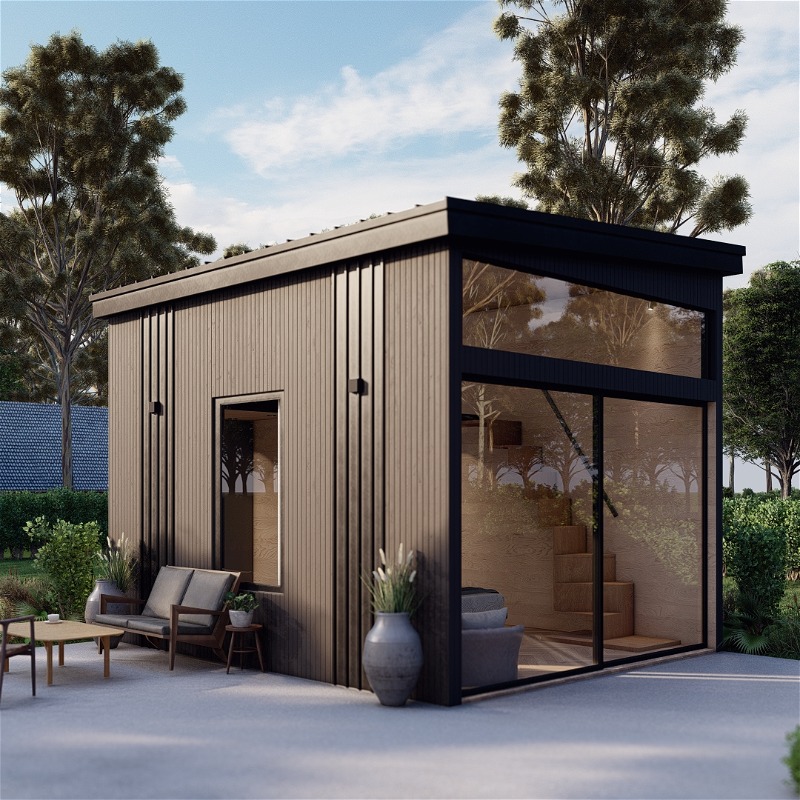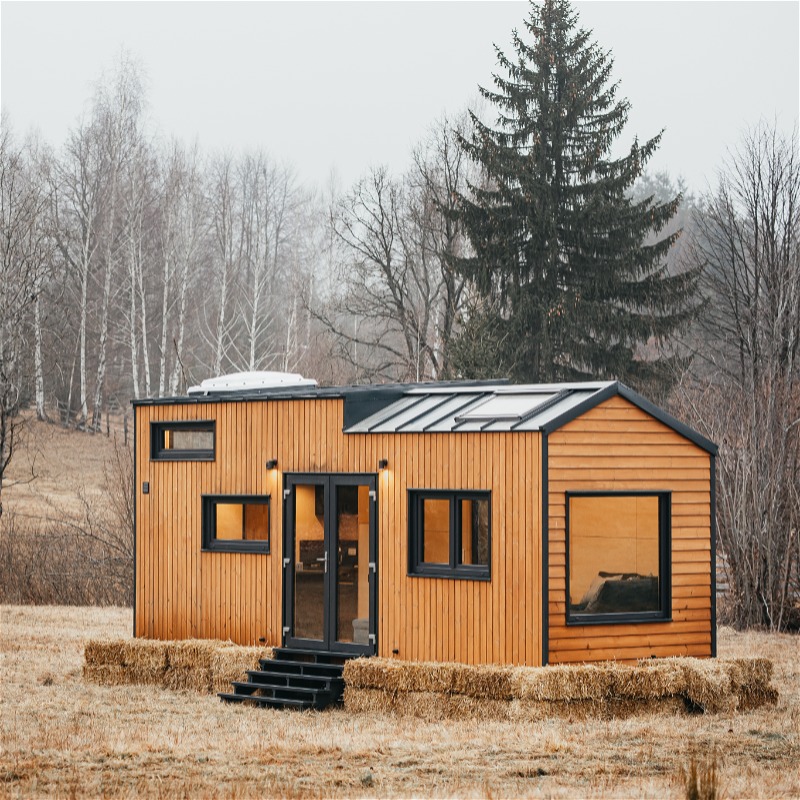


In a world where sustainability and efficiency are increasingly important, the leisure sector is witnessing a growing trend: the emergence of tiny houses as an ideal accommodation option. Recent statistics show that the average length of stay in Dutch accommodations is only 3.8 days, of which guests spend an average of 2 days outside the accommodation, mainly at dining facilities. This presents a unique opportunity for campsite owners and leisure park operators to adapt and innovate their offerings. But how exactly can tiny houses capitalise on these trends, and why should they play a key role in your future strategy? Let's take a closer look at this.
-
- Efficient use of space
Tiny houses are the epitome of efficient use of space. Their compact design provides everything a guest needs in a limited space, making them particularly suitable for shorter stays. This efficiency also means you can fit more units within the same area, increasing the capacity of your venue without sacrificing comfort.
- Efficient use of space
-
- Increased Spending on Location
The trend of guests spending a significant part of their stay outside the accommodation, especially for meals, underlines the importance of strong hospitality facilities. By combining tiny houses with high-quality, accessible food and beverage outlets on your property, you can create an environment where guests spend more time and money within your park or campsite. This not only increases guest satisfaction, but also improves your sales.
- Increased Spending on Location
-
- Attracting a Wider Audience
Tiny houses appeal to a wide audience, from millennials who value unique travel experiences and sustainability, to older couples looking for comfort without the worries of large accommodation. This versatility makes it an attractive option for almost any guest, regardless of their age or travel preferences.
- Attracting a Wider Audience
-
- Sustainability and environmental friendliness
Sustainability is an increasingly important aspect in consumer choices. Tiny houses are often built with sustainable materials and designed to minimise their carbon footprint. This not only attracts environmentally conscious travellers, but also positions your company as a forerunner in the green leisure sector.
- Sustainability and environmental friendliness
-
- Cost-Efficiency
The construction and maintenance of tiny houses are generally less expensive than traditional accommodation options. This allows you to invest in other aspects of your business, such as improving facilities or adding new services, giving you a competitive advantage in the market. - To conclude
Implementing tiny houses into your leisure offering is more than a trend; it is a strategic move that responds to changing consumer needs and preferences. By investing in this innovative form of accommodation now, you can not only improve your guests' stay experience, but also position your business for future success.
So, what are you waiting for? It's time to step up and welcome your guests into the charming, efficient, and sustainable world of tiny houses. Let your leisure park or campsite be the place where modern trends meet traditional hospitality.
- Cost-Efficiency

